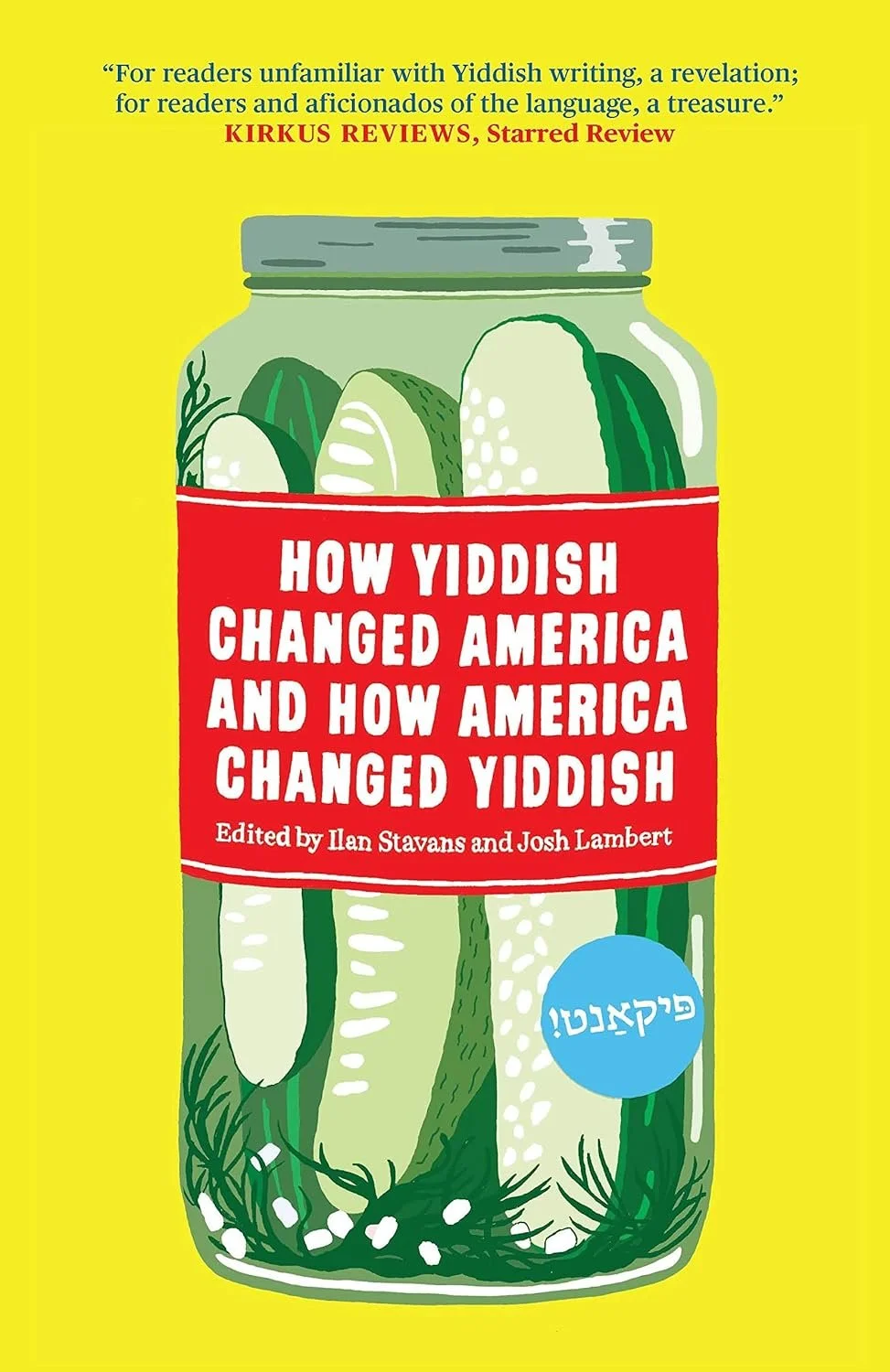I bought this book two or three years ago, and it has given me a huge amount of pleasure. The main reason for this is the sheer variety of aspects of Yiddish it covers, making it one of those books you can just dip into. To quote from the Preface:
“Each of the entries is introduced with a brief context and a timeline presents some fascinating and representative historical events, but… this isn't a history. It's most of all meant to be a grab bag, an opportunity for readers to get a little lost and to discover something that they weren't expecting. It showcases the rich Yiddish voices in America and of the American culture influenced and inspired by … Yiddish and its speakers and their descendants.”
The book is divided into six sections, these being Politics and possibility; The mother tongue remixed; Eat, enjoy and forget; American commemoration; Oy, the children!;and The other Americas.
Within each section there is a wide variety of writing genres. For example, in Eat, enjoy and forget there is an essay, a short story, a lexicon, a song and even recipes. Other chapters combine fiction, essays, poems, cartoons, parodies, plays and memoir. So you can see why the book is so inviting: it seems to have something to cater for every kind of reading you fancy at any particular time.
If the focus on America in some sections puts you off, don’t let it. They include a story and an essay by Isaac Bashevis Singer, and short stories set in Colombia and Mexico, as well as a parody by David Frischmann, in which a father tries to distract his son from studying the Talmud by hiring an attractive nanny. And that is another attractive aspect of the book, the way humorous and serious pieces sit side by side.
As well as complete self-contained pieces, there are also excerpts from longer ones. For example, an extract from The Yiddish Policemen’s Union, by Michael Chabon is included.
I have also enjoyed discovering writers I had never heard of such as Claudia Mirelstein, whose short story The Yiddish Terrorist is set in Colombia. It’s a very unusual story, as its title probably suggests, and not one I’ve come across in short story collections.
One of my favourite books is The Joys of Yiddish, so I was delighted to find an essay about it. Apparently, some people dismissed it, one even going so far as to call Rosten a yenta (gossip) – presumably because of all the anecdotes used to illustrate how the words are used in conversation. I find it interesting that while Yiddish as a language is dying out (although there does seem to me a lot of renewed interest in it these days), many of the words have become embedded in English, especially in America. It’s not unusual to hear words like “chutzpa”, for example, turn up in TV programmes. I’m sure Rosten was a key influence in this regard.
So, with Chanukah on the horizon, if you’re feeling stumped about what presents to give people, you might wish to consider this book. It will give the recipient plenty of enjoyment for a long time to come. You can find it on Amazon for just over £15.
Terry Freedman is a freelance writer. His newsletter, Eclecticism, may be found at https://terryfreedman.substack.com/.

